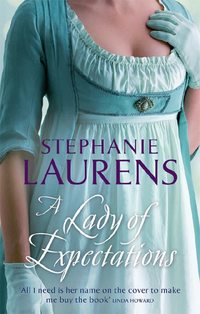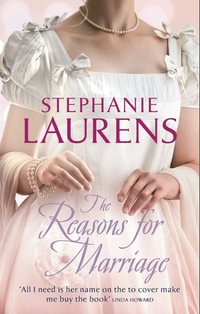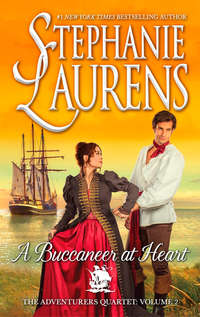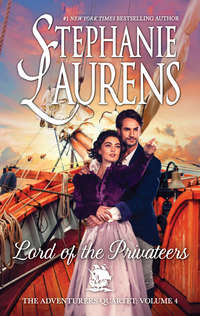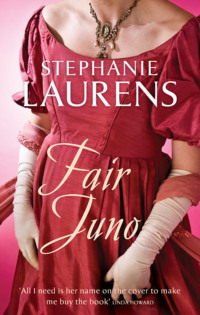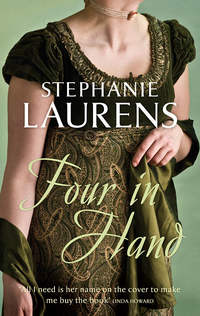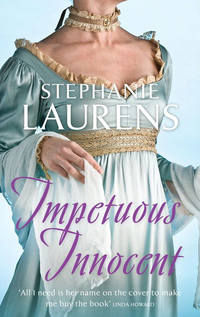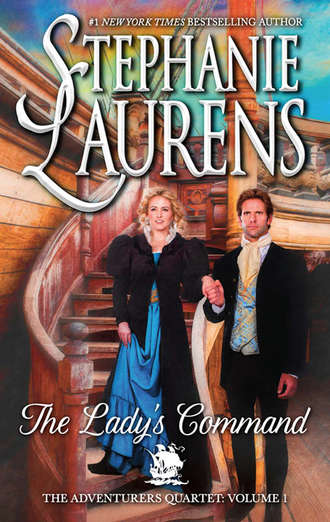
Полная версия
The Lady's Command

INTERIOR ARTWORK
IS LOCATED
BETWEEN CHAPTER 5 AND CHAPTER 6
and also can be accessed via the TABLE OF CONTENTS
The Lady’s Command
The Adventurers Quartet: Volume 1
Stephanie Laurens


ISBN: 978-1-474-03708-2
THE LADY’S COMMAND (THE ADVENTURERS QUARTET: VOLUME 1)
© 2015 Stephanie Laurens
Published in Great Britain 2015
by HQ, an imprint of HarperCollinsPublishers Ltd 1 London Bridge Street London SE1 9GF
Cover design by Savdek Management Pty. Ltd.
Cover and inside front couple photography and photographic composition © 2015 Period Images
Image of galleon stairs: photographic credit to Aleksandrs Tihonovs
The name Stephanie Laurens is a registered trademark of Savdek Management Proprietary Ltd.
All rights reserved including the right of reproduction in whole or in part in any form. This edition is published by arrangement with Harlequin Books S.A.
This is a work of fiction. Names, characters, places, locations and incidents are purely fictional and bear no relationship to any real life individuals, living or dead, or to any actual places, business establishments, locations, events or incidents. Any resemblance is entirely coincidental.
By payment of the required fees, you are granted the non-exclusive, non-transferable right and licence to download and install this e-book on your personal computer, tablet computer, smart phone or other electronic reading device only (each a “Licensed Device”) and to access, display and read the text of this e-book on-screen on your Licensed Device. Except to the extent any of these acts shall be permitted pursuant to any mandatory provision of applicable law but no further, no part of this e-book or its text or images may be reproduced, transmitted, distributed, translated, converted or adapted for use on another file format, communicated to the public, downloaded, decompiled, reverse engineered, or stored in or introduced into any information storage and retrieval system, in any form or by any means, whether electronic or mechanical, now known or hereinafter invented, without the express written permission of publisher.
How does marriage work? If convention is set aside and is no longer there to guide…what then?
#1 New York Times bestselling author Stephanie Laurens brings you THE ADVENTURERS QUARTET, a riveting blend of Regency-era high seas adventure, a mystery shrouded in the heat of tropical jungles, and the passionate romances of four couples and their unexpected journeys into love.
The instant Captain Declan Frobisher laid eyes on Lady Edwina Delbraith, he knew she was the lady he wanted as his wife. The scion of a seafaring dynasty accustomed to success, he discovered that wooing Edwina was surprisingly straightforward—not least because she made it plain that she wanted him as much as he wanted her.
Declan’s vision of marriage was of a gently-reared wife to grace his arm, to manage his household, and to bear his children. He assumed that household, children, and wife would remain safely in England while he continued his life as an explorer sailing the high seas.
Declan got his wish—up to a point. He and Edwina were wed. As for the rest—his vision of marriage…
Aunt of the young Duke of Ridgware and sister of the mysterious man known as Neville Roscoe, London’s gambling king, even before the knot was tied Edwina shattered the illusion that her character is as delicate, ethereal, and fragile as her appearance suggests. Far from adhering to orthodox mores, she and her ducal family are even more unconventional than the Frobishers.
Beneath her fairy-princess exterior, Edwina possesses a spine of steel—one that might bend, but will never break. Born to the purple—born to rule—she’s determined to rule her life. With Declan’s ring on her finger, that means forging a marriage that meets her needs as well as his.
But bare weeks into their honeymoon, Declan is required to sail to West Africa. Edwina decides she must accompany him.
A secret mission with unknown villains flings unexpected dangers into their path as Declan and Edwina discover that meeting the challenge of making an unconventional marriage work requires something they both possess—bold and adventurous hearts.
The first voyage is one of exploration, the second one of discovery. The third journey brings maturity, while the fourth is a voyage of second chances.
Start the journey here and follow the adventure, the mystery, and the romances to the cataclysmic end.
Praise for the works of Stephanie Laurens
“Stephanie Laurens’ heroines are marvelous tributes to Georgette Heyer: feisty and strong.” Cathy Kelly
“Stephanie Laurens never fails to entertain and charm her readers with vibrant plots, snappy dialogue, and unforgettable characters.” Historical Romance Reviews
“Stephanie Laurens plays into readers’ fantasies like a master and claims their hearts time and again.” Romantic Times Magazine
The Lady’s
Command
Stephanie Laurens
CAST OF CHARACTERS
Principal Characters:
Frobisher, Declan – Hero Frobisher, Lady Edwina – Heroine
In London:
Staff:
Humphrey – butler King, Mrs. – housekeeper Cook – cook Wilmot – lady’s maid
Family:
Delbraith, Lucasta, Dowager Duchess of Ridgware – Edwina’s mother Delbraith, Lord Julian, aka Neville Roscoe – Edwina’s older brother and London’s gambling king Delbraith, Lady, Miranda – Julian’s wife Catervale, Lady Millicent – Edwina’s oldest sister Catervale, Lord – Millicent’s husband Elsbury, Lady Cassandra – Edwina’s sister Elsbury, Lord – Cassandra’s husband Crawford, Anthea – Lucasta’s companion, a distant cousin
Society:
Montgomery, Lady – ton hostess Mitchell, Lady Cerise – ton lady Fitzwilliam, Mr. – gentleman of the ton Holland, Lady – major ton hostess Marchmain, Lady – ton grande dame Minchingham, Lady – ton hostess Forsythe, Lady – ton hostess Comerford, Lady – ton hostess
Government:
Wolverstone, Duke of, aka Dalziel – ex-commander of British secret operatives outside England Wolverstone, Duchess of, Minerva – Wolverstone’s wife Melville, Viscount – First Lord of the Admiralty
In Aberdeen:
Frobisher, Fergus – Declan’s father Frobisher, Elaine – Declan’s mother Frobisher, Royd (Murgatroyd) – eldest Frobisher brother
At sea:
Frobisher, Robert – second oldest Frobisher brother Frobisher, Caleb – youngest of four Frobisher brothers Frobisher, Catrina (Kit) – female cousin Frobisher, Lachlan – male cousin
In Freetown:
Dixon, Captain – army engineer, missing Hopkins, Lieutenant – navy, West Africa Squadron, missing Fanshawe, Lieutenant – navy, West Africa Squadron, missing Hillsythe – ex-Wolverstone agent, governor’s aide, missing Holbrook, Governor – Governor-in-Chief of British West Africa Holbrook, Lady, Letitia – Governor’s wife Satterly, Mr. – Governor’s principal aide Eldridge, Major – Commander, Fort Thornton Decker, Vice-Admiral – Commander, West Africa Squadron, currently at sea Richards, Captain – army, Fort Thornton Wallace – house agent in Freetown Hardwicke, Mrs. Mona – minister’s wife Hardwicke, Mr. – Anglican minister Sherbrook, Mrs. – local lady Quinn, Mrs. – local lady Robey, Mrs. – local lady Hitchcock, Mrs. – local lady Winton, Major – Commissar of Fort Thornton Winton, Mrs. – wife of Major Winton Babington, Charles – partner, Macauley & Babington Trading Company Macauley, Mr. – senior partner, Macauley & Babington Trading Company Macauley, Mrs. Genevieve – wife of Macauley Undoto, Obo – local priest Sampson – old sailor Lashoria – vodun priestess
On board The Cormorant:
Caldwell, Mr. Joshua – First Mate Johnson, Mr. – Master Grimsby – Bosun Elliot – Quartermaster Henry, Mr. – Steward Dench – experienced sailor Carruthers – experienced sailor Billings – experienced sailor Higgins – sailor Upshaw – sailor Martin – sailor Ginger – cabin boy Cam – cabin boy
CHAPTER 1
April 1824
London
Marrying the lady of his dreams had proved surprisingly easy. Forging the marriage of his dreams… That, apparently, was an entirely different challenge.
Declan Fergus Frobisher stood alongside Lady Edwina Frobisher née Delbraith—his new wife—and let the cacophony generated by the tonnish crowd gathered in Lady Montgomery’s drawing room wash over him. The chattering was incessant, like a flock of seagulls squawking, yet such exchanges were the sole purpose of a soirée. In a many-hued kaleidoscope of fine silks and satins, of darker-hued superfines and black evening coats, the crème de la crème of the haut ton drifted and shifted from one circle to the next in a constantly rearranging tapestry. The large room was illuminated by several chandeliers; light glinted on artfully twisted curls and pomaded locks and in the facets of myriad jewels adorning the throats, earlobes, and wrists of the many ladies attending.
One heavily burdened lady swept up in a dazzle of diamonds. “Edwina, my dear!” The lady pressed fingers and touched cheeks with Declan’s beloved, who greeted the newcomer with her customary sunny charm, yet the lady’s gaze had already shifted to him, traveling down and then up his long length. Then she directed a smile—a distinctly predatory smile—at him. “You must—simply must—introduce me to your husband.” The lady’s tone had lowered to a feminine purr.
Declan glanced at Edwina; he wondered how she would react to the lady’s transparent intent.
His wife didn’t disappoint; she smiled delightedly—the very picture of a cat who had savored an entire bowlful of cream and expected to indulge further shortly. Her expression radiated supreme confidence; the sight made him inwardly grin. As if sensing his amusement, she cast him a glance from her fine blue eyes and with an airy wave stated, “Lady Cerise Mitchell, my husband, Declan Frobisher.”
Hearing the subtle yet distinctly possessive emphasis she had placed on the words “my husband,” with his lips curving in a polite smile, he took the hand Lady Cerise extended and bowed. She murmured a seductive “Enchanté,” but he’d already lost interest in her. Although he devoted a small part of his mind and his awareness to the parade of people who came up to converse, to answering their questions and deflecting any he considered too prying, interacting with them wasn’t why he was there.
On Edwina’s other side stood her mother, Lucasta, Dowager Duchess of Ridgware, a handsome, haughty lady of arrogantly noble mien. Beyond the dowager stood Edwina’s sister, Lady Cassandra Elsbury, a pleasant young matron a few years older than Edwina. The rest of their circle was comprised of several bright-eyed ladies and intrigued gentlemen, all eager to claim acquaintance with the ducal ladies and, even more importantly, to learn more of the unknown-to-them gentleman who had captured the hand of one of the haut ton’s prizes. Declan did his best to meet their expectations by cultivating a mysterious air.
In reality, there was little mystery as to who he was. His family was ancient—the Frobishers had fought alongside Raleigh in Elizabeth’s time. They were well-born, with an unassailable entrée to the highest echelons based on their venerable lineage alone, yet from centuries past, the Frobishers had elected to follow their own esoteric, not to say eccentric, path, habitually eschewing even the fringes of the ton. While Raleigh had fought for personal glory first, Crown second, the Frobishers entered battles reluctantly and only at the Crown’s command. They were a seafaring dynasty, and battles cost lives and ships; they fought only when they needed to, which was only when they were needed.
They’d been at Trafalgar, but not under Nelson’s command. Instead, the Frobisher fleet had ensured none of the French fled north to regroup. Declan’s father and his uncles had used their swift ships to good effect, crippling and capturing many French frigates.
Consequently, among the ton, the Frobisher name was well known, easily placed. The mystery, such as it was, had always lain in who the current family members were and in what the family actually did. The manner in which they derived their fortune and the size of that fortune. The Frobishers had never had much interest in land, and what acres they held lay far to the north, close by Aberdeen—a very long way from London. The family’s assets were largely floating, which, for the ton, raised the conundrum of whether the otherwise acceptable family had descended into trade. The ton lauded those who lived off their acres, but had difficulty equating acres with ships.
In addition, many of those present had heard whispers, if not outright rumors, about the family’s more recent exploits. Most of those rumors—of explorations into the wilds and hugely profitable deals concerned with shipping—had their genesis in truth. If anything, the truth was even more outlandish than any tonnish speculation.
Of course, in society, unsubstantiated rumors only generated more interest. That interest—that barely veiled curiosity—shone brightly in the eyes of many of Lady Montgomery’s guests.
“I say, Frobisher,” a Mr. Fitzwilliam drawled. “I heard that one of your family recently talked the American colonists into accepting some new trade treaty. What was that about, heh? Was that you?”
That had been Robert, one of Declan’s two older brothers and the most diplomatically inclined. The treaty Robert had sailed from Georgia with would make the family even more wealthy and also contribute significantly to the Crown’s coffers.
But Declan only smiled and said, “That wasn’t me.” When Fitzwilliam showed signs of persevering, he added, “I haven’t heard that rumor.”
Why would he listen to rumors when he knew the facts?
He had no intention of gratifying anyone by explaining his family’s business. His entire interest in the evening—the sole reason he was there—was encompassed by the lady standing, scintillating and effervescent, by his side.
She affected his senses like a lodestone, gleaming like a diamond, sparkling and alluring—intrinsically fascinating. From the topmost golden curl to the tips of her dainty feet, she commanded and captivated his awareness. In part, that was a physical response—what red-blooded man could resist the appeal inherent in a tumble of pale blond ringlets framing a heart-shaped face, in bright blue eyes, large and well set beneath finely arched brown brows and lushly fringed by long brown lashes, in a peaches-and-cream complexion unmarred by any blemish beyond a row of freckles dusted across the bridge of her small nose, and in lips full and rosy that just begged to be kissed? Yet on top of that, those lips were mobile, usually upturned in a smile, her expression fluid, reflecting her moods, her thoughts, her interest, while her brilliantly alive, vibrantly blue eyes were a gateway to a keenly intelligent mind.
Add to that a petite figure that was the epitome of the notion of a pocket Venus, and it was hardly surprising that no other being could so easily fix his attention. She was a prize worth coveting; from his very first sight of her, she’d called to him—to the acquisitive adventurer at the core of his soul.
They’d been married for just over three weeks. A year before, having sailed from New York into London and having a month to wait before his next voyage, he’d surrendered to ennui and the entreaty of old friends and had accompanied the latter to a ton ball. Throughout the round-trip to New York, he’d been conscious of a needling, pricking restlessness of a sort he hadn’t previously experienced; entirely unexpectedly, his thoughts had turned to the comfort of home and hearth, to family.
To marriage.
To a wife.
The instant he’d laid eyes on Edwina at that very first ball last year, he’d known who his wife would be. With typical single-mindedness, he’d set about securing her, the sometimes-haughty daughter of a ducal house; at twenty-two, having been out for three years, she’d already gained a reputation for being no man’s easy mark.
They’d struck sparks from the first touch of their fingers, from the first moment their gazes collided. Wooing Edwina had been blessedly easy. Several months later, he’d applied for her hand and been accepted.
In his mind, all had been progressing smoothly toward the comfortable, conventional marriage he had—in those few minutes he’d spent thinking of it—assumed their union would be.
Then, three months before the wedding, Lucasta and Edwina had braved the winter snows to visit his family at their manor house outside Banchory-Devenick. When he’d learned the purpose of that visit, he’d initially assumed it had been Lucasta’s idea. Later, he’d discovered it was Edwina who had insisted that the Frobishers needed to be informed before the wedding, rather than after, of the secret her family had been hiding for more than a decade.
Utterly intrigued, he, his parents, and his three brothers had sat in the comfort of the large family parlor and listened as Lucasta had explained. Learning that her elder son, the eighth duke, had taken his own life because of mountainous debts, and that her second son, Lord Julian Delbraith, wasn’t missing, presumed dead, as all of society assumed, but instead was masquerading in plain sight as Neville Roscoe, London’s gambling king, had definitely been a surprise.
Not, as Edwina had clearly anticipated, a shocking surprise, but an infinitely intriguing and attractive one.
The possibilities every one of the Frobishers had immediately seen in the prospect of being connected with a man of Roscoe’s caliber—his power, authority, and assets—had elevated their estimation of Declan’s marriage from very good to unbelievably excellent.
Later, in private, his father, Fergus, had clapped him on the shoulder and exclaimed, “Gads, boy—you couldn’t have done better! A personal link to Neville Roscoe… Well, no one knew such a thing was there to be had! Such a connection will only make this family all the stronger.”
Fergus, Declan’s mother, Elaine, and his brothers had welcomed the match from the first, but that wholly unanticipated ramification had been the crowning glory.
In the days following the wedding, a large event held at the local church on the ducal estate in Staffordshire—days he, Edwina, and his family had spent at Ridgware with her immediate family—he, his father, and his brothers had had a chance to meet with the elusive Lord Julian Delbraith, known to the world as Neville Roscoe. Apparently, Roscoe’s recent marriage to Miranda, now Lady Delbraith, had forced him to overturn his long-held intention never to reappear under his true name. Julian and Miranda had attended the wedding, although they’d remained carefully screened and out of sight of all the other guests.
Edwina had been thrilled over her brother’s presence, and Declan had been pleased on that account alone. The subsequent private meeting between the Frobishers, Roscoe, and his right-hand man, Jordan Draper, had all but literally been the icing on the wedding cake. As a group, they’d explored all manner of potential interactions; it had quickly become clear that Roscoe viewed the match every bit as favorably as the Frobishers. All in all, that meeting had been a coming together of like minds.
That had been the immediate outcome of learning the truth about the Delbraiths, but like a stone dropped into a pool, subsequent ripples continued to appear.
Later, Declan and Edwina had followed his family north to spend a few weeks in Banchory-Devenick; several days after their arrival, Fergus had asked Declan to accompany him on one of his walks.
Once they were away from the house, his eyes on the ground before him, Fergus had stated, “It occurs to me, boy-o, that there’s a great deal we could learn from your Edwina’s family. I’m not talking about Roscoe, but the others—especially the ladies.”
Unsure just what his father meant, Declan had remained silent.
After several paces, Fergus had continued, “It’s been a long time since any Frobisher moved among the ton. It was never our battlefield, so to speak. But I look at the old duchess—the dowager—and her daughters, and the daughter-in-law, too, and I think about what they’ve managed to achieve over the last decade. Given what they had to hide, being capable of…not exactly hoodwinking the ton, but veiling the truth, and all so subtly and elegantly done… That takes talent of a sort we, as a family, lack.”
Fergus’s sharp, agate-y gaze had shifted to pin Declan. “You said you intend taking Edwina to town—that you’ve hired a house there and that Edwina and the dowager think the pair of you need to appear in society to establish yourselves, whatever that means. I’m thinking that might provide a useful opportunity for you to watch and see what you can learn of how they manage things.”
“Manage things.” After a moment, he’d said, “You want me to learn how they manipulate the ton into seeing what they want the ton to see.”
“Exactly!” Fergus had faced forward. “The Delbraiths might be a family led by women, the duke being so young, but none of those females are fools. They all know how to operate in the ton, how to bend ton perceptions to their advantage. They have skills we could use, m’boy. We might eschew the ton, deeming it irrelevant to us, but you can’t duck the weight of a birthright, and who knows what the future will bring?”
That conversation rang in Declan’s mind as he smiled and complimented a young lady on her beautifully carved oriental fan. He’d long ago learned to trust his father’s insights; Fergus Frobisher was widely respected as a canny old Scot. So as they had planned, he and Edwina had come to London and taken up residence in a rented town house in Stanhope Street. Lucasta had joined them in town, but she was staying with her eldest daughter, Lady Millicent Catervale, in Mount Street. Declan appreciated his mother-in-law’s sensitivity in giving him and Edwina their privacy.
Subsequently, Edwina and Lucasta, aided by Millie and Cassie, had put their heads together and come up with a list of events Edwina had declared she had to attend. She’d excused him from all the daytime entertainments, but had requested his presence at the evening events, a request to which he’d readily agreed.
They’d attended several balls, dinners, soirées, and routs over the past week. And tonight, as at those previous events, he was there to observe, to watch and learn how his wife and the females of her family “managed” the ton.
He’d initially studied Lucasta, reasoning that she had to have been the principal instigator in promulgating the non-shocking, acceptable-to-the-ton versions of her older son’s demise and of her younger son’s disappearance; only because he’d been watching closely had he noticed the difference between Lucasta in private and Lucasta in society. It was like a screen, a veil of sorts, but not something anyone observing her could pierce; even knowing it was there, he couldn’t see past it, not while she had it deployed. Lucasta’s screen made her appear more rigid, definitely colder, and more arrogantly aloof. It was an emotional screen that held others at a distance and allowed only the reactions Lucasta wished to display to show through.


